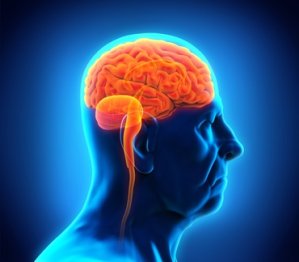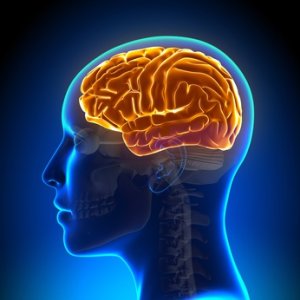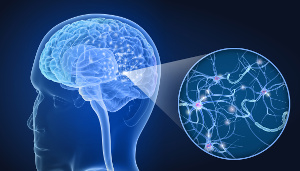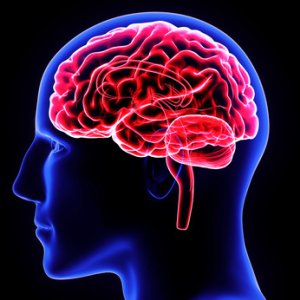 The number of older people is constantly increasing, and more and more people suffer from Alzheimer’s disease and other types of dementia. Apparently, seniors who take a daily multivitamin can improve their memory and slow down their cognitive decline, according to a meta-analysis that is published in Journal of Clinical Nutrition. Older people generally have increased need for certain vitamins and minerals because of poor nutrient absorption in the digestive system, impaired enzyme functions, oxidative stress, and regular use of medical drugs that can interact with the nutrients. But how do different vitamins and minerals affect brain health?
The number of older people is constantly increasing, and more and more people suffer from Alzheimer’s disease and other types of dementia. Apparently, seniors who take a daily multivitamin can improve their memory and slow down their cognitive decline, according to a meta-analysis that is published in Journal of Clinical Nutrition. Older people generally have increased need for certain vitamins and minerals because of poor nutrient absorption in the digestive system, impaired enzyme functions, oxidative stress, and regular use of medical drugs that can interact with the nutrients. But how do different vitamins and minerals affect brain health?
 Studies show that large quantities of B vitamins are able to slow mild cognitive impairment, which is an early stage of dementia and Alzheimer's disease. A more recent study suggests, however, that B vitamins are not effective, unless the body is properly supplied with the omega-3 fatty acids that are found in fish oil.
Studies show that large quantities of B vitamins are able to slow mild cognitive impairment, which is an early stage of dementia and Alzheimer's disease. A more recent study suggests, however, that B vitamins are not effective, unless the body is properly supplied with the omega-3 fatty acids that are found in fish oil.
 According to a new study from Melbourne's Swinburne University, supplementing with B vitamins gives you more vitality and surplus in mentally challenging situations, thereby reducing the subjective feeling of stress. The study is the first to use a special technique to reveal the circulatory flow through the brain.
According to a new study from Melbourne's Swinburne University, supplementing with B vitamins gives you more vitality and surplus in mentally challenging situations, thereby reducing the subjective feeling of stress. The study is the first to use a special technique to reveal the circulatory flow through the brain.
 According to a British population study, this seems to be the case. At the same time, it’s alarming that vitamin D deficiency is such a widespread problem and that Alzheimer’s disease and other typers of dementia are on the rise, because there is most likely a connection. How does vitamin D affect brain health, and how much vitamin D do we need to help nerve cells and cells in general function optimally?
According to a British population study, this seems to be the case. At the same time, it’s alarming that vitamin D deficiency is such a widespread problem and that Alzheimer’s disease and other typers of dementia are on the rise, because there is most likely a connection. How does vitamin D affect brain health, and how much vitamin D do we need to help nerve cells and cells in general function optimally?
 Everyone is affected by electromagnetic radiation from cell phones, device screens, the electricity supply and other electric systems. The brain’s neurons are particularly vulnerable, especially because electromagnetic radiation can increase the neuronal uptake of calcium ions, which makes the neurons overactive and may even cause them to perish. A study published in News Medical Life Sciences shows that too much calcium in the brain increases the risk of Alzheimer’s disease and digital dementia in young individuals. The increased electromagnetic radiation also generates loads of free radicals in the body that can cause oxidative stress and cellular damage because it outperforms the body’s different antioxidants. This was described in an article published in The Journal of Microscopy & Ultrastructure that also mentions how electromagnetic radiation can cause stress, headaches, fatigue, anxiety, and other symptoms.
Everyone is affected by electromagnetic radiation from cell phones, device screens, the electricity supply and other electric systems. The brain’s neurons are particularly vulnerable, especially because electromagnetic radiation can increase the neuronal uptake of calcium ions, which makes the neurons overactive and may even cause them to perish. A study published in News Medical Life Sciences shows that too much calcium in the brain increases the risk of Alzheimer’s disease and digital dementia in young individuals. The increased electromagnetic radiation also generates loads of free radicals in the body that can cause oxidative stress and cellular damage because it outperforms the body’s different antioxidants. This was described in an article published in The Journal of Microscopy & Ultrastructure that also mentions how electromagnetic radiation can cause stress, headaches, fatigue, anxiety, and other symptoms.
 Neurological disorders such as Alzheimer’s disease, dementia, depression, Parkinson’s disease, stroke, migraine, and fibromyalgia are rather common. These conditions are a result of imbalances in the nervous system, and they are often insidious. In a new review article that is published in Frontiers in Neuroscience, researchers have studied Q10’s role in the different neurological disorders. The reason for this is that Q10 is important for cellular energy turnover and serves as an antioxidant that protects the circulatory system and the nerve cells against oxidative damage. As we grow older, our endogenous Q10 synthesis decreases, and certain diseases and medical drugs also impair the body’s Q10 synthesis.
Neurological disorders such as Alzheimer’s disease, dementia, depression, Parkinson’s disease, stroke, migraine, and fibromyalgia are rather common. These conditions are a result of imbalances in the nervous system, and they are often insidious. In a new review article that is published in Frontiers in Neuroscience, researchers have studied Q10’s role in the different neurological disorders. The reason for this is that Q10 is important for cellular energy turnover and serves as an antioxidant that protects the circulatory system and the nerve cells against oxidative damage. As we grow older, our endogenous Q10 synthesis decreases, and certain diseases and medical drugs also impair the body’s Q10 synthesis.
 Q10 is a unique compound with a key role in cellular energy turnover. It also serves as a powerful antioxidant. The body is able to synthesize most of the Q10 that it needs but as we grow older, our endogenous synthesis decreases, making us vulnerable in different ways. Cholesterol-lowering medicine and certain types of disease are also associated with lower levels of Q10 in the body. In a new review article, a group of scientists have scrutinized hundreds of Q10 studies that have been published in the years 2010-2020. They are able to conclude that Q10 is of particular importance to the heart, circulatory system, fertility, muscles, eyes and vision, and the ageing process. Things like migraines, chronic fatigue syndrome, and neurodegenerative diseases such as Parkinson’s and Alzheimer’s disease are also addressed. The body has difficulty with absorbing Q10 from food and supplements so it is recommendable to always choose a pharmaceutical-grade Q10 preparation with documented bioavailability.
Q10 is a unique compound with a key role in cellular energy turnover. It also serves as a powerful antioxidant. The body is able to synthesize most of the Q10 that it needs but as we grow older, our endogenous synthesis decreases, making us vulnerable in different ways. Cholesterol-lowering medicine and certain types of disease are also associated with lower levels of Q10 in the body. In a new review article, a group of scientists have scrutinized hundreds of Q10 studies that have been published in the years 2010-2020. They are able to conclude that Q10 is of particular importance to the heart, circulatory system, fertility, muscles, eyes and vision, and the ageing process. Things like migraines, chronic fatigue syndrome, and neurodegenerative diseases such as Parkinson’s and Alzheimer’s disease are also addressed. The body has difficulty with absorbing Q10 from food and supplements so it is recommendable to always choose a pharmaceutical-grade Q10 preparation with documented bioavailability.
 It’s commonly known that physical activity boosts the brain’s ability to form new brain cells – or neurons. Still, the underlying mechanisms have been a mystery to science. A team of Australian scientists, however, has recently discovered that, during exercise, mice produce a selenium-containing protein that helps the brain synthesize new brain cells. The scientists consider this to be a rather fantastic study, and it is assumed that selenium therapy may be used in the future to prevent and treat cognitive decline in people who are unable to carry out physical exercise or in those likely to be selenium-deficient. This is particularly relevant for Alzheimer’s patients and people who have suffered a stroke. It should be added that it can be quite a challenge to get enough selenium from an otherwise balanced diet in our part of the world.
It’s commonly known that physical activity boosts the brain’s ability to form new brain cells – or neurons. Still, the underlying mechanisms have been a mystery to science. A team of Australian scientists, however, has recently discovered that, during exercise, mice produce a selenium-containing protein that helps the brain synthesize new brain cells. The scientists consider this to be a rather fantastic study, and it is assumed that selenium therapy may be used in the future to prevent and treat cognitive decline in people who are unable to carry out physical exercise or in those likely to be selenium-deficient. This is particularly relevant for Alzheimer’s patients and people who have suffered a stroke. It should be added that it can be quite a challenge to get enough selenium from an otherwise balanced diet in our part of the world.
 The number of seniors worldwide is increasing and more and more are affected by Alzheimer’s disease, the leading cause of dementia. We should therefore focus much more on this health problem that comes with an enormous human and socio-economic price tag. According to a new meta-analysis, supplementation with B vitamins appears to prevent or delay mild cognitive impairment in older people, which is normally an early sign of Alzheimer’s disease. In fact, supplementation with B vitamins may even represent an inexpensive therapy form with a huge potential.
The number of seniors worldwide is increasing and more and more are affected by Alzheimer’s disease, the leading cause of dementia. We should therefore focus much more on this health problem that comes with an enormous human and socio-economic price tag. According to a new meta-analysis, supplementation with B vitamins appears to prevent or delay mild cognitive impairment in older people, which is normally an early sign of Alzheimer’s disease. In fact, supplementation with B vitamins may even represent an inexpensive therapy form with a huge potential.
- and widespread deficiency has serious consequences
 It is commonly known that vitamin C has an essential role in our connective tissue and immune defense. However, vitamin C is also vital for the brain. This was demonstrated in a new Australian study of the link between vitamin C and cognitive functions like memory, lingual skills, calculation, and orientation. The scientists also point to the fact that vitamin C deficiency is rather common in western countries, either due to dietary factors or because of conditions that increase the need for the nutrient.
It is commonly known that vitamin C has an essential role in our connective tissue and immune defense. However, vitamin C is also vital for the brain. This was demonstrated in a new Australian study of the link between vitamin C and cognitive functions like memory, lingual skills, calculation, and orientation. The scientists also point to the fact that vitamin C deficiency is rather common in western countries, either due to dietary factors or because of conditions that increase the need for the nutrient.
 Alzheimer’s disease causes the brain to malfunction and is therefore the leading cause of dementia. According to a new American study, a particular form of vitamin B3 may help prevent neurological damage and therefore has a positive impact on Alzheimer’s patients. As part of the prevention of this disease, it is also important to make sure to get plenty of all the other nutrients.
Alzheimer’s disease causes the brain to malfunction and is therefore the leading cause of dementia. According to a new American study, a particular form of vitamin B3 may help prevent neurological damage and therefore has a positive impact on Alzheimer’s patients. As part of the prevention of this disease, it is also important to make sure to get plenty of all the other nutrients.
 Dementia is on the rise across the globe but according to a study from University of South Australia, vitamin D may have the potential to pull the brake on the degenerative processes. The scientists have observed a direct link between the widespread problems with vitamin D deficiency and the increasing rate of dementia. At the same time, they assume that optimizing people’s vitamin D status in the blood may help prevent millions of dementia cases worldwide. The need for vitamin D varies from person to person, it should be noted, and many people have a higher need for the vitamin than what is officially recommended.
Dementia is on the rise across the globe but according to a study from University of South Australia, vitamin D may have the potential to pull the brake on the degenerative processes. The scientists have observed a direct link between the widespread problems with vitamin D deficiency and the increasing rate of dementia. At the same time, they assume that optimizing people’s vitamin D status in the blood may help prevent millions of dementia cases worldwide. The need for vitamin D varies from person to person, it should be noted, and many people have a higher need for the vitamin than what is officially recommended.
 The number of older people is increasing rapidly, which means more and more people suffer from different types of dementia. Vitamin D supplementation may help prevent dementia or delay its progression, according to a population study that is published in Alzheimer’s & Dementia: Diagnosis, Assessment & Disease Monitoring. It is important to have optimal blood levels of the nutrient throughout life, simply because it often takes years for dementia to develop, and because vitamin D has many different functions that are relevant for brain health.
The number of older people is increasing rapidly, which means more and more people suffer from different types of dementia. Vitamin D supplementation may help prevent dementia or delay its progression, according to a population study that is published in Alzheimer’s & Dementia: Diagnosis, Assessment & Disease Monitoring. It is important to have optimal blood levels of the nutrient throughout life, simply because it often takes years for dementia to develop, and because vitamin D has many different functions that are relevant for brain health.
 Vitamin D plays a major role in our health. The main focus, however, is on vitamin D’s importance for bones, while many health professionals are totally unaware of the nutrient’s other essential functions. According to a review article published in Nutrients, half the global population has low vitamin D levels in the blood, which increases the risk of cardiovascular disease, hypertension, cancer, type 2 diabetes, Alzheimer’s disease, respiratory infections like COVID-19, and early death. The authors also mention that vitamin D science is often inadequate or misleading because studies focus on supplementation rather than looking at blood levels of 25(OH)D. Consequently, trials are often made with far too small vitamin D doses or with too a short a trial period. In either case, blood levels of vitamin D fail to reach their optimum. What is more, levels of 25(OH)D in the blood should ideally be above 75 nmol/L in order to protect against cardiovascular disease, cancer, and early death. Because this threshold level is higher than the official threshold levels, the scientists recommend high-dosed vitamin D levels as a way to reach an optimal nutrient status.
Vitamin D plays a major role in our health. The main focus, however, is on vitamin D’s importance for bones, while many health professionals are totally unaware of the nutrient’s other essential functions. According to a review article published in Nutrients, half the global population has low vitamin D levels in the blood, which increases the risk of cardiovascular disease, hypertension, cancer, type 2 diabetes, Alzheimer’s disease, respiratory infections like COVID-19, and early death. The authors also mention that vitamin D science is often inadequate or misleading because studies focus on supplementation rather than looking at blood levels of 25(OH)D. Consequently, trials are often made with far too small vitamin D doses or with too a short a trial period. In either case, blood levels of vitamin D fail to reach their optimum. What is more, levels of 25(OH)D in the blood should ideally be above 75 nmol/L in order to protect against cardiovascular disease, cancer, and early death. Because this threshold level is higher than the official threshold levels, the scientists recommend high-dosed vitamin D levels as a way to reach an optimal nutrient status.
A high do se of vitamin E daily has in a double - blind, placebo-controlled study shown to reduce the progression of Alzheimer's disease by 19% compared with placebo in elderly people who had the disease in mild to moderate degree.
se of vitamin E daily has in a double - blind, placebo-controlled study shown to reduce the progression of Alzheimer's disease by 19% compared with placebo in elderly people who had the disease in mild to moderate degree.
- and other types of organ damage
 Vitamin K occurs naturally in different forms. The vitamin is primarily known for its role in blood coagulation, but a team of German scientists has found a new type of vitamin K. This form serves as a very particular type of antioxidant that counteracts cell death caused by a process called ferroptosis. Because ferroptosis is involved in the development of Alzheimer’s disease, acute organ damage, and other diseases, the researchers see a whole new potential for vitamin K in the prevention and mitigation of ferroptosis-related ailments. Earlier studies even suggest that selenium-containing antioxidants also protect against cell death caused by ferroptosis.
Vitamin K occurs naturally in different forms. The vitamin is primarily known for its role in blood coagulation, but a team of German scientists has found a new type of vitamin K. This form serves as a very particular type of antioxidant that counteracts cell death caused by a process called ferroptosis. Because ferroptosis is involved in the development of Alzheimer’s disease, acute organ damage, and other diseases, the researchers see a whole new potential for vitamin K in the prevention and mitigation of ferroptosis-related ailments. Earlier studies even suggest that selenium-containing antioxidants also protect against cell death caused by ferroptosis.
 The risk of dementia and neurological disorders increases with age. Diet plays an important role and it is assumed that the widespread lack of vitamin K2is particularly relevant. In order to test this hypothesis, a group of scientists measured levels of vitamin K2 in the brains of deceased seniors. They found significantly fewer cases of cognitive decline, dementia, and Alzheimer’s disease in brains with higher K2 levels. This has something to do with the fact that vitamin K2 counteracts atherosclerosis, accumulation of harmful protein, and brain inflammation. The study is published in the journal Alzheimer’s & Dementia and sheds a whole new light on vitamin K’s potential role in brain health and the importance of getting enough of this nutrient.
The risk of dementia and neurological disorders increases with age. Diet plays an important role and it is assumed that the widespread lack of vitamin K2is particularly relevant. In order to test this hypothesis, a group of scientists measured levels of vitamin K2 in the brains of deceased seniors. They found significantly fewer cases of cognitive decline, dementia, and Alzheimer’s disease in brains with higher K2 levels. This has something to do with the fact that vitamin K2 counteracts atherosclerosis, accumulation of harmful protein, and brain inflammation. The study is published in the journal Alzheimer’s & Dementia and sheds a whole new light on vitamin K’s potential role in brain health and the importance of getting enough of this nutrient.
 The number of older people is constantly increasing, and more and more people suffer from Alzheimer’s disease and other types of dementia. Apparently, seniors who take a daily multivitamin can improve their memory and slow down their cognitive decline, according to a meta-analysis that is published in Journal of Clinical Nutrition. Older people generally have increased need for certain vitamins and minerals because of poor nutrient absorption in the digestive system, impaired enzyme functions, oxidative stress, and regular use of medical drugs that can interact with the nutrients. But how do different vitamins and minerals affect brain health?
The number of older people is constantly increasing, and more and more people suffer from Alzheimer’s disease and other types of dementia. Apparently, seniors who take a daily multivitamin can improve their memory and slow down their cognitive decline, according to a meta-analysis that is published in Journal of Clinical Nutrition. Older people generally have increased need for certain vitamins and minerals because of poor nutrient absorption in the digestive system, impaired enzyme functions, oxidative stress, and regular use of medical drugs that can interact with the nutrients. But how do different vitamins and minerals affect brain health?











 Studies show that large quantities of
Studies show that large quantities of  According to a new study from Melbourne's Swinburne University, supplementing with
According to a new study from Melbourne's Swinburne University, supplementing with 
 Everyone is affected by electromagnetic radiation from cell phones, device screens, the electricity supply and other electric systems. The brain’s neurons are particularly vulnerable, especially because electromagnetic radiation can increase the neuronal uptake of calcium ions, which makes the neurons overactive and may even cause them to perish. A study published in News Medical Life Sciences shows that too much calcium in the brain increases the risk of Alzheimer’s disease and digital dementia in young individuals. The increased electromagnetic radiation also generates loads of free radicals in the body that can cause oxidative stress and cellular damage because it outperforms the body’s different antioxidants. This was described in an article published in The Journal of Microscopy & Ultrastructure that also mentions how electromagnetic radiation can cause stress, headaches, fatigue, anxiety, and other symptoms.
Everyone is affected by electromagnetic radiation from cell phones, device screens, the electricity supply and other electric systems. The brain’s neurons are particularly vulnerable, especially because electromagnetic radiation can increase the neuronal uptake of calcium ions, which makes the neurons overactive and may even cause them to perish. A study published in News Medical Life Sciences shows that too much calcium in the brain increases the risk of Alzheimer’s disease and digital dementia in young individuals. The increased electromagnetic radiation also generates loads of free radicals in the body that can cause oxidative stress and cellular damage because it outperforms the body’s different antioxidants. This was described in an article published in The Journal of Microscopy & Ultrastructure that also mentions how electromagnetic radiation can cause stress, headaches, fatigue, anxiety, and other symptoms. Neurological disorders such as Alzheimer’s disease, dementia, depression, Parkinson’s disease, stroke, migraine, and fibromyalgia are rather common. These conditions are a result of imbalances in the nervous system, and they are often insidious. In a new review article that is published in Frontiers in Neuroscience, researchers have studied Q10’s role in the different neurological disorders. The reason for this is that
Neurological disorders such as Alzheimer’s disease, dementia, depression, Parkinson’s disease, stroke, migraine, and fibromyalgia are rather common. These conditions are a result of imbalances in the nervous system, and they are often insidious. In a new review article that is published in Frontiers in Neuroscience, researchers have studied Q10’s role in the different neurological disorders. The reason for this is that 
 It’s commonly known that physical activity boosts the brain’s ability to form new brain cells – or neurons. Still, the underlying mechanisms have been a mystery to science. A team of Australian scientists, however, has recently discovered that, during exercise, mice produce a selenium-containing protein that helps the brain synthesize new brain cells. The scientists consider this to be a rather fantastic study, and it is assumed that
It’s commonly known that physical activity boosts the brain’s ability to form new brain cells – or neurons. Still, the underlying mechanisms have been a mystery to science. A team of Australian scientists, however, has recently discovered that, during exercise, mice produce a selenium-containing protein that helps the brain synthesize new brain cells. The scientists consider this to be a rather fantastic study, and it is assumed that  The number of seniors worldwide is increasing and more and more are affected by Alzheimer’s disease, the leading cause of dementia. We should therefore focus much more on this health problem that comes with an enormous human and socio-economic price tag. According to a new meta-analysis, supplementation with
The number of seniors worldwide is increasing and more and more are affected by Alzheimer’s disease, the leading cause of dementia. We should therefore focus much more on this health problem that comes with an enormous human and socio-economic price tag. According to a new meta-analysis, supplementation with  It is commonly known that
It is commonly known that  Alzheimer’s disease causes the brain to malfunction and is therefore the leading cause of dementia. According to a new American study, a particular form of
Alzheimer’s disease causes the brain to malfunction and is therefore the leading cause of dementia. According to a new American study, a particular form of  Dementia is on the rise across the globe but according to a study from University of South Australia,
Dementia is on the rise across the globe but according to a study from University of South Australia,  The number of older people is increasing rapidly, which means more and more people suffer from different types of dementia.
The number of older people is increasing rapidly, which means more and more people suffer from different types of dementia. 
 se of vitamin E daily has in a double - blind, placebo-controlled study shown to reduce the progression of Alzheimer's disease by 19% compared with placebo in elderly people who had the disease in mild to moderate degree.
se of vitamin E daily has in a double - blind, placebo-controlled study shown to reduce the progression of Alzheimer's disease by 19% compared with placebo in elderly people who had the disease in mild to moderate degree.
 The risk of dementia and neurological disorders increases with age. Diet plays an important role and it is assumed that the widespread lack of
The risk of dementia and neurological disorders increases with age. Diet plays an important role and it is assumed that the widespread lack of "After about one week of taking the Q10 supplement I could feel a huge difference," says 23-year old Alan Piccini, who has been suffering from extreme fatigue and muscle aches ever since he was a child.
"After about one week of taking the Q10 supplement I could feel a huge difference," says 23-year old Alan Piccini, who has been suffering from extreme fatigue and muscle aches ever since he was a child. “Taking capsules with co-enzyme Q10 has freed me of the severe side effects of my cholesterol lowering medicine,” Mrs Franken explains.
“Taking capsules with co-enzyme Q10 has freed me of the severe side effects of my cholesterol lowering medicine,” Mrs Franken explains.